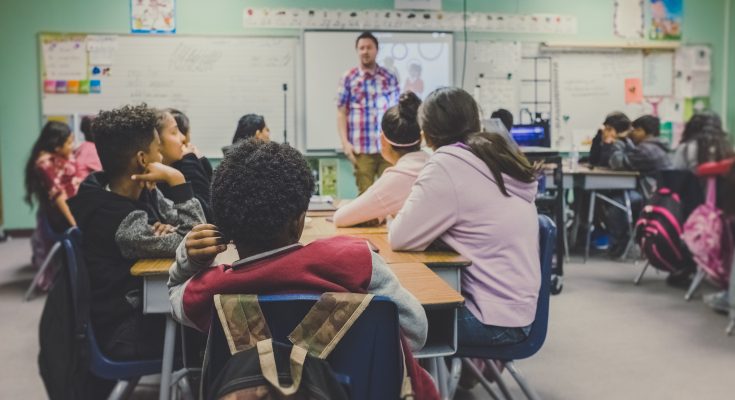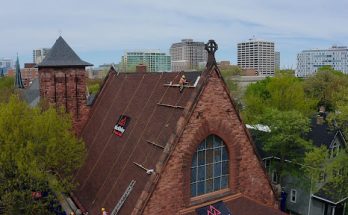If you make a portrait of a teacher from Canada, Estonia, Spain, Ukraine, it emerges more or less clearly. But the portrait of a teacher from the UAE is rather vague. This is a country whose education system consists of the most diverse educational systems in the world. The fact is that in the Emirates there is no state education system as such – there are separate schools operating according to the American, British, German curriculum, and quite a few schools for Indians. And each of them has its own teacher.
Not without interesting nuances: if we are talking about a British school in the UAE, they try to invite teachers with British, American, Canadian, Australian diplomas to work there. Advantage – light-skinned. Even in resumes they are asked to indicate nationality, they emphasize what gender and age a potential candidate or candidate should be. We would say: sexism, ageism, discrimination based on skin color. In the UAE, these are the usual requirements. Please attach a photo to your resume. For your understanding, in the USA it is generally forbidden to require a photo in a resume so that a potential employer does not make an impression of a person in appearance. Try to look for Job abroad search service.
Table of Contents
Surveillance cameras in every classroom as “insurance”
If we talk about schools operating under the British or American program, then it is common practice to install surveillance cameras in every classroom. Logical question: why? So that parents can see exactly what their children are doing during the day – and, at any time. This is nothing more than an online broadcast of the educational process. Of course, the school administration also sees the video.
Its representatives can visit the teacher after the lesson or invite them to their place if some situation from what they saw in the lesson seemed controversial to them. One of the tasks of the administration is to help teachers resolve conflict situations and avoid slippery moments in communication with parents. If the child says: “The teacher swung at me” – there is always the opportunity to check the recording on the camera.
Teachers in the UAE do not feel that their rights are being infringed upon or distrusted in this way. They say: “I am confident in the quality of teaching, in my behavior. Cameras are not annoying or distracting. If you’re a professional, what’s the problem?”
5 categories of schools: from weak to extraordinary
Only 15% of schools in the UAE are public. And only children whose parents are Arabs and citizens of this country have the right to study in them. The UAE is a country of expats and, accordingly, private schools. Private schools are divided into 5 categories:
- оutstanding schools;
- very good;
- good;
- acceptable;
- weak.
The status of a school is subject to change and needs to be updated every year during the commission of the KHDA institution, which is responsible for the quality of secondary education in private schools, of which there are 85% in the UAE.
KHDA – Knowledge and Human Development Authority (Knowledge and Human Development Authority) checks schools according to a number of criteria within 1-3 weeks. There are about 80 evaluation indicators (from the level of professionalism of teachers to infrastructure). For each school in the UAE there is information on the website of the institution, and parents can assess the strengths and weaknesses of the educational institution and make a choice. The cost of schooling depends on a large number of factors, including the KHDA score.
For the poor, tuition fees, by the way, can be about $200 a year. Very wealthy residents can spend up to $40,000 a year on their child’s education.
The higher the rating of the school, the greater the requirements for the selection of teachers.
Teacher in the UAE is a free expat
The main task of the teacher is to challenge the students and set an interesting task. The children will then work on solving it, and this is usually a team effort. The role of the teacher is not central, but mentoring.
The teacher does not dictate what and how he should do – there is great confidence in the methods chosen by the teacher. But the standards, of course, should be observed.
In the UAE, there is no such thing as “want” or “don’t want” to become a teacher, because most of the teachers are expats who are not citizens of the country. There are no special preferences for local teachers. I did not notice the difference between a teacher in the UAE and a representative of any other field. Is that training in the country begins a little later due to excessive heat. Often, since April, children no longer go outside, all activities are carried out indoors.
Teachers themselves earn an average of $3,000 a month, which is a fairly small amount considering the cost of living in the country.
How do children of sheikhs learn?
Public Arabic schools are a separate world! We spoke with Indian teachers who worked there for some time and were amazed by their observations. Some of the stories sounded like a real blockbuster!
Schools where children of the indigenous population of the country study – about 15%. An important point: only UAE citizens can study in Arabic schools. It would seem that a school is like a school, but who is special there is … children!
The culture of fostering since childhood has led to the fact that young Arabs are extremely spoiled. The feeling of exclusivity greatly affects the level of assimilation of the material and behavior. Unfortunately, the level of respect for teachers in such schools is low. The teacher there is just a miss serving you.
Of course, these schools also have government audits, and in order to pass them, teachers have to resort to tricks.
For example, in a year, students must pass 10 units in English. But one of the units the teacher studies with students especially carefully. By the time the inspection comes with a check, the children will definitely memorize the material.
Teachers in such schools should be very careful with physical contact. A teacher can go to jail for holding a child’s hand without permission. There was a story about a student with special educational needs, being in a state of aggression, hit a teacher who was trying to break up a physical conflict. She fell and lost consciousness. Because the teacher was unable to resolve the situation in the classroom, she was taken to the local police station and subsequently deprived of the right to teach.
And a Dutch teacher once grabbed an Arab student by the shoulder to take him aside and talk about the situation. An hour later, special forces arrived at the school, the teachers were arrested. And since the student also wrote a complaint against the teacher and was at the same time the heir of an influential person, the poor teacher is now closed to schools in the UAE.
Arab parents are not too concerned about the school problems of their children. “What kind of mischief did Mohammed smoke?” – they ask the teacher, because in a family there can be five children with that name.
Children with special educational needs in the UAE are integrated into the educational process. At the same time, each such student has a shadow teacher – a teacher’s assistant who helps with the integration of the child into the class.
Nuance: parents have to pay extra for a shadow teacher separately, and this amount is quite substantial – almost the same as the cost of education for a year.





